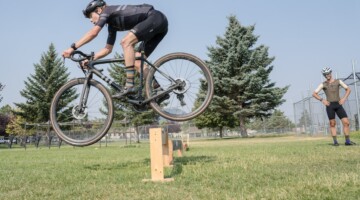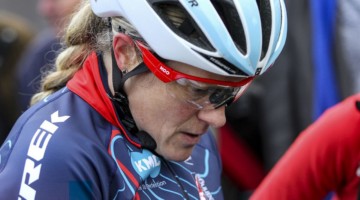Like many of you, I saw the post recently about the Cat 3 who tested positive for testosterone and at first, I was shocked. But then, I felt sorry for him as it turned out that he admitted he was taking it on the pre-test paperwork. I don’t know all of the details of that situation, but it’s very possible that he thought that since it was prescribed by a doctor, then it was OK. As a family doctor who has treated a fair number of guys for low testosterone and a doctor who has also taken care of a lot of cyclists, I feel compelled to give some words of advice to try to help folks understand the current low testosterone blitz and the difference between USADA-approved use and medically-indicated use.
First, even if your doctor approves the medication, that does not mean that it is legal in races. A great example are ADD meds like Ritalin and Adderall—These are banned substances (amphetamines) and so, an athlete has to choose if and when he or she will use these.
Second, use the WADA website if you are taking any medication. WADA is the World Anti-Doping Agency and they set the guidelines on what meds are legal and what meds are not. Their website is pretty easy to search and they even have a mobile option. Do not expect your doctor to know these. I took care of a pro-cycling team for a few years and the drug we really had to watch was good old Sudafed (pseudoephedrine). It seems perfectly benign and it’s in tons of things but was absolutely banned in competition. Doctors know what should get you better, but not what is legal in drug-tested sports.
Third, if you need to be on a banned substance, have your doctor fill out a TUE. This is a Therapeutic Use Exemption and is found on the USADA website. This is a request to USADA to have your medication approved for use during the race season. Some meds are banned at all times, like EPO, and others are banned in competition only. They will review this and determine if the reason is valid for use in competition. For example, I was one of the team docs for Team Type 1, which was a great group of mostly Type 1 diabetics. Insulin is a banned substance (I won’t get into the pharmacology of it, but it’s banned). Anyhow, if you know anything about Type 1 diabetes, you know that insulin is not an option, it’s essential to live. All of the men and women on the team had to have a TUE to use their insulin while competing. USADA looked very hard at these applications because they did not want to give an unfair advantage to any athlete. Because the riders had a condition that made insulin essential to their health, it was approved. Testosterone is rarely essential to life though, which is why it’s almost impossible to get a TUE for it even if you have a physician’s prescription.
Let me elaborate on the low T a bit more. Hypogonadism (fancy term used for low T) is a largely manufactured term used by the pharma industry (search “low testerone NY Times” for some good info). In my practice, I have certainly seen guys that have low numbers and the symptoms of low energy, depressed mood, low libido etc. I have seen some pretty impressive results on testosterone replacement as well. However, a lot of times, these depressed numbers are a symptom of another problem. Pharma has tried to convince us that this is a process of aging and to some extent it is, but the more common causes I see are obesity or physical/psychological stress. Obesity is not the issue for most of the group reading this, but the latter sure is. Overtraining will drop your T like a rock. I’ve seen plenty of overtrained 25-year-old athletes with an 80-year-old’s testosterone. Because of this, it’s easy for an athlete to “qualify” for testosterone. Think about it, the Masters athlete who is trying to balance training and a stressful job and family feels fatigued, grouchy, poor recovery, and low—that’s all of us at some point in the season.
This, of course, is not because of low T, the low T is usually a result of life. Testosterone will often help with these symptoms, but that’s analogous to taking cholesterol meds and continuing to eat cheeseburgers. Thanks to the inundation of testosterone ads to patients and doctors, male endurance athletes are prime targets to fall prey to the thought that they need to be on testosterone, and sadly, doctors who are pressed for time and only look at lab numbers can often get a low number on any masters athlete coming off a hard block of training.
Testosterone is a banned substance because it works 100% of the time. Any use gives that athlete an advantage over a similar athlete who doesn’t use it. As a fellow racer, it’s easy to look at your performance and think, “Man, I feel like something is off,” and if your doctor says your T is low, then you can easily go down that rabbit hole. Most guys aren’t consciously thinking about developing a sophisticated doping plan to win the Cat 4 series, rather, they want to simply race well and feel good.
My advice, if you are a male racer with at least one testicle, don’t use testosterone, period. If your T is low usually, that just means that you need some good sleep (when a lot of T is made) and recovery. One of the best bits of Masters racing training I ever heard was to race hard and rest harder.
This piece was contributed by Matt Marchal, M.D. of Downtown Decatur Family Medicine, a Board Certified Family Physician and Cat 3 and self-described Masters ’cross hack.























